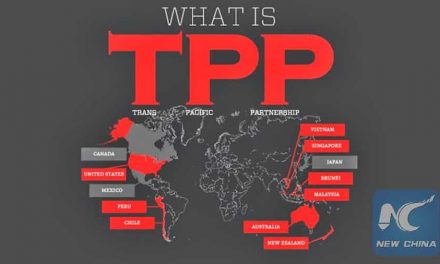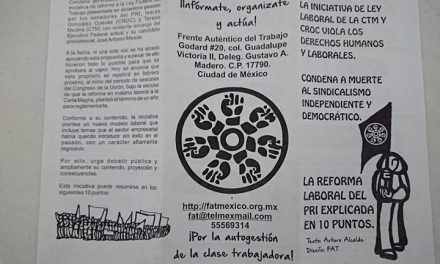Signing TPP: a step back for Canada
Ottawa, Toronto, Montreal – After more than five years of secret negotiations and the conclusion of the Trans-Pacific Partnership (TPP) negotiations in the middle of the federal election 2015, Ministers from the 12 TPP countries now plan to meet in Auckland New Zealand on February 4th to formally sign the deal. The timing for the signing matters because it allows countries to begin ratification through their legislative processes.
The Liberal government has committed to being “transparent, open and consultative” with Canadians prior to ratification. As part of this commitment, Trade Minister Chrystia Freeland has embarked in a series of meetings with limited stakeholders while welcoming Canadians to submit suggestions and comments on a government website. The Minister should undertake a rigorous public debate on the impacts of the TPP, including holding public hearings in each province and territory across Canada.
Minister Freeland has said the government has not taken a decision yet, but signing the deal and her reluctance to engage in thorough consultations with some of the largest multisectoral networks in the country does not bode well for the process. These coalitions, the Trade Justice Network (TJN), Common Frontiers and the Quebec Network on Continental Integration (RQIC), are disappointed at Minister Freeland lack of response to repeated invitations from the Mexican Senate to participate in an International Parliamentary dialogue on the TPP along with legislators from United States, Peru, and Chile in Mexico on January 28th. The meeting forms part of a larger international gathering that brings together popular social movements from TPP countries in the Americas who have concerns with the mammoth deal.
By signing this deeply flawed agreement, the Canadian government will take one step closer to increasing restrictions on the ability of governments to regulate in the public interest. These restrictions will cover areas not directly related to trade like quality food production, access to medicines, health care, the internet and digital rights, environment, climate action and labour regulations. The accord will drive down wages and labor conditions; encourage further outsourcing and offshoring, thus contributing to the widening gap of income inequality in Canada and other TPP countries.
The TPP also includes the anti-democratic investor-state dispute settlement (ISDS) mechanism that allows multinational corporations to sue governments over regulations and policies they feel impact their investment. Such suits are not heard in domestic courts but rather are decided by unaccountable commercial arbitrators. The arbitrators can impose enormous fines against elected governments, and there is no right of appeal. The ISDS threatens democracy constitutional rights, sidesteps and threatens our judicial system, and will cost tax payers tens of millions in awards to corporations suing under ISDS. According to the report of United Nations Independent Expert on the promotion of a democratic and equitable international order, Alfred de Zayas, ISDS threatens human rights and should be banned.
The TPP would also be a step backward on environment protections. With minimal requirements and no enforcement mechanism, the environment chapter – as in previous trade deals – is unenforceable. The chapter includes vague and toothless language that falls short of requiring countries to adopt sound measures against harmful environmental practices and lacks protections for land, air, water, and wildlife. Worse, the accord creates a serious chill effect on governments who will hesitate to enact new legislation to confront challenges like Climate change.
Civil society organizations in Canada and Quebec are alarmed by the fact that despite widespread civil society opposition to the TPP, all signs point to the Canadian government moving ahead and joining the TPP. A report by researchers at Tufts’ Global Development and Environment Institute reveals that the deal will cost Canada 58,000 jobs and increase income inequality. Similarly, Canada’s largest private sector union, UNIFOR, says the deal threatens more than 26,000 Canadian auto jobs in both assembling and parts-making. The TPP is a bad deal for Canada and puts the public interest at risk.
Because the entire deal must be ratified as agreed, and no modifications are allowed, it will tie the hands of the Canadian government and legislators for decades. Trade and Investment deals like TPP are only superficially about trade – they are mostly about increasing corporate rights. They seek to fundamentally change the power structures in countries by shifting power to the world’s plutocrats and away from elected governments and domestic courts.
More information:
Larry Brown, lbrown@nupge.ca / Trade Justice Network / cel. 613-228-9800
Pierre-Yves Serinet, rqic@ciso.qc.ca / Réseau québécois sur l’intégration continentale / cel. 438-396-6284
Raul Burbano, burbano@rogers.com / Common Frontiers / cel. 416-522-8615
Download statement as a PDF: in English en français en español






